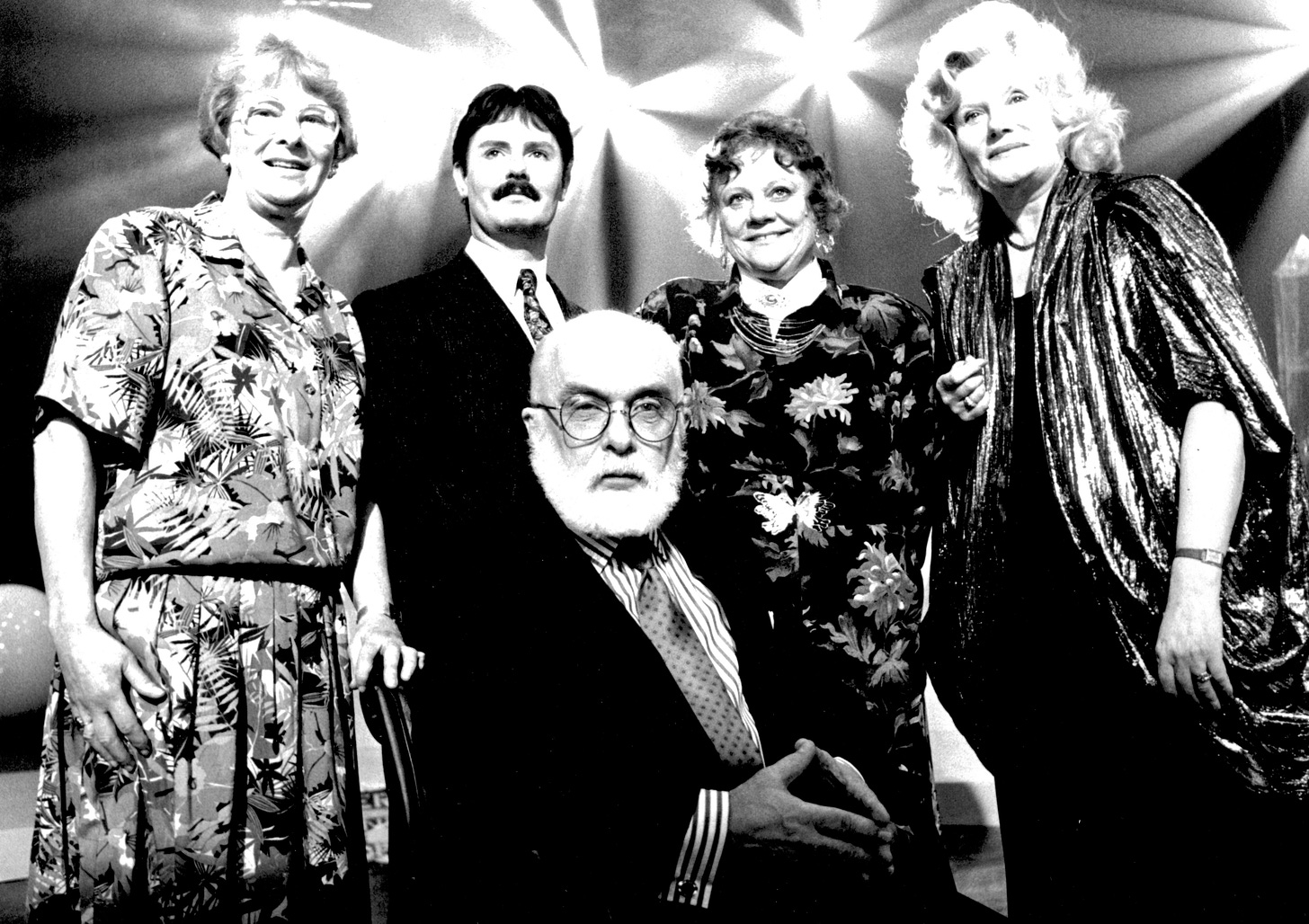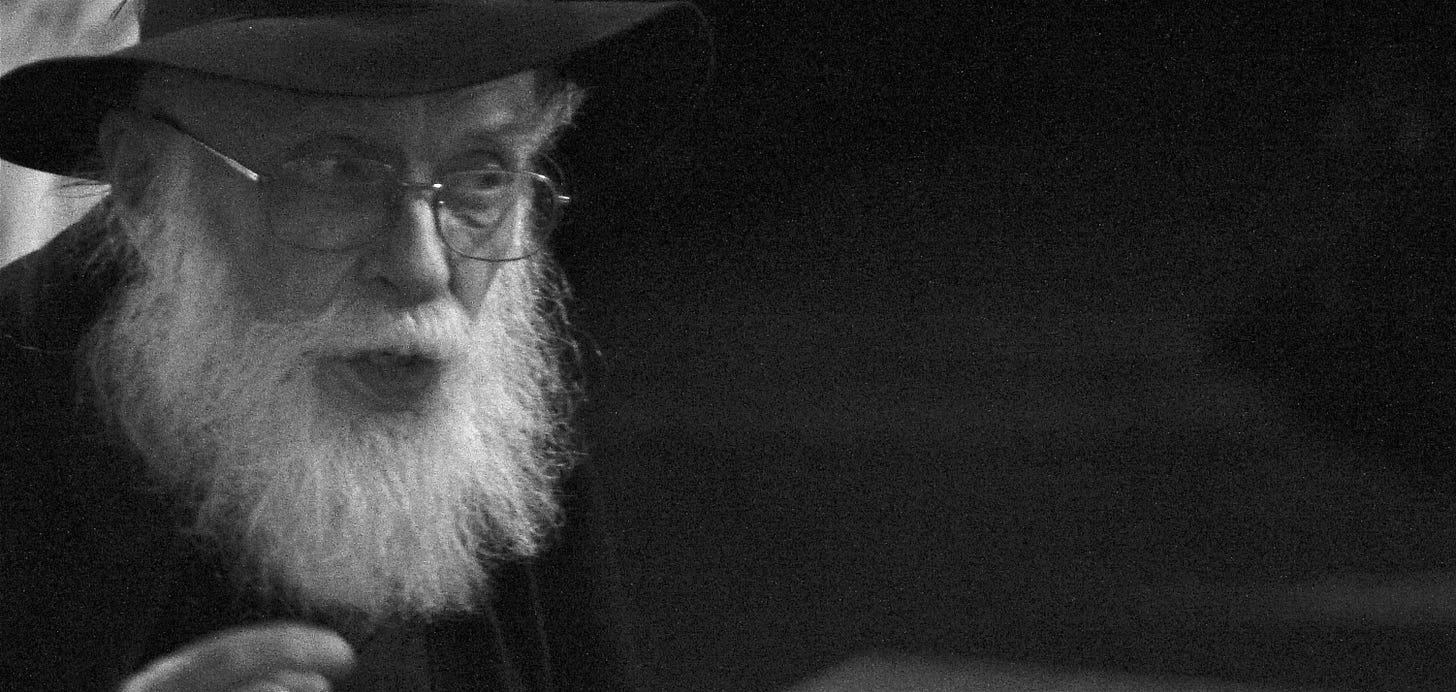Beyond “Amazing”: Rethinking James Randi’s Legacy
Revisiting Randi’s Social Darwinism, the backlash, and why silence in the skeptic movement still matters
“I’m going to play it, okay?”
“Yep.”
Suddenly, over the phone, I can hear the unmistakable voice of James Randi.
I’m standing in the quiet outside the building where I work, and journalist Will Storr has called so I can hear exactly what Randi said to him about Social Darwinism during the interview that later appeared in The Heretics: Adventures with the Enemies of Science.
Some people in the skeptic movement had suggested that Will had quote-mined Randi when he wrote that Randi said:
I’m a believer in Social Darwinism. Not in every case. I would do anything to stop a twelve-year-old kid from doing it. Sincerely. But in general, I think that Darwinism, survival of the fittest, should be allowed to act itself out. As long as it doesn’t interfere with me and other sensible, rational people who could be affected by it. Innocent people, in other words.
- James Randi, The Heretics
Doubtful News then reported that Randi, in a direct quote to Sharon Hill, denied ever saying he believed in Social Darwinism:
“The statement ‘I’m a believer in social Darwinism,’ did not come from me. In fact, I had to look up the expression to learn what was being referred to. This attack appears to be calling me a Nazi, nothing less.
I demand that Mr. Storr refer me to the original sources to which we assume he has referred. Until then, I’ll only say that he has carefully selected phrases and statements out of context, not the sort of referencing that I would have expected from him.”
- James Randi
Godwin’s-law flavour aside, that’s when I got in touch with Will to let him know what was being said publicly. He offered to play me the relevant part of the interview. On the call, I listened as Randi talked about his view that drugs should be made legal so that people with addictions could, in his words, “do themselves in”. He then added:
“I’m a believer in, if you call that Social Darwinism, I would have to generally agree.”
There’s a pause, and Will points out that many people would see that as a very right-wing view of other people. The conversation continues from there.
So, no, Storr hadn’t conjured this out of nowhere.
Quote-Mining, or Just Unpleasant Views?
“Quote mining” – taking words out of context to make someone appear to say something they didn’t – is a serious accusation, especially aimed at a journalist. As Will pointed out to me, it’s not something he’d do lightly; apart from the ethical problem, it would be inviting legal trouble and reputational damage.
In this case, what’s in The Heretics is not quote-mined. Randi really did say that if his belief about letting people with addictions “do themselves in” is Social Darwinism, then that’s what he believes. He framed it conditionally (“if you call that Social Darwinism…”), but he agreed with the label when it was put to him. That’s what Will reported.

I put people at the James Randi Educational Foundation in touch with Will so they could hear the same recording I’d heard. After that happened, Randi left a new comment on the original Doubtful News post. In it, he retracted the accusation that Storr had misrepresented him.
In his response, Randi included the following:
I have always believed that people should be held accountable for the bad decisions they make, especially when society spends so much in time and resources to warn them of the likely consequences. I cannot understand how any informed adult who is aware of the facts may still choose to misuse drugs or alcohol. I believe that they should simply get out of the way of those who want a cleaner, better, safer and productive environment in which to raise their families.”
This is, frankly, a horrible opinion to hold about people struggling with addiction. People I care for have worked to overcome addiction. Some didn’t succeed the first or second time they tried to get clean, but eventually managed to turn their lives around, but it’s a day-to-day task that takes incredible discipline. To suggest that they should “simply get out of the way” when they stumble or struggle is not just insulting, it’s ignorant of what we know about trauma, poverty, mental health, and the neuroscience of addiction.
To his credit, Randi then wrote:
“I’m well aware that I sometimes ‘shoot from the hip’ and speak on things about which I know very little […] I accept that I have been wrongheaded on a number of topics related to these issues. Even at 84, I’m still learning. Please bear with me, folks.”
On that point, I agree. No matter how intelligent you are, how long you’ve been around, or how much you’ve done, there is always more to learn. A huge chunk of our worldview is built on biases we don’t notice. Being able to say, “I didn’t know enough, I said some regrettable things, I was wrongheaded” is important.
But I also think that someone in Randi’s position should already be in the habit of turning that sceptical lens on his own views, not just on other people’s. This is not the first time he’s shared opinions that were irrational or poorly supported. The problem isn’t that he’s imperfect – everyone is – but that many people had him filed away as an infallible hero, which made it harder for them to see (or admit) when he messed up.
2025 Update: What The Fallout Revealed
When my original post went up, I caught a lot of flak. Some people in the sceptic movement were furious that I’d written about this at all, or that I’d dared to criticise Randi publicly. Others accused me, and Will Storr, of trying to “demonise” him or doing the believers’ work for them. One prominent figure in the sceptic movement was seen to ask “why is she getting involved?”
The people who stuck their fingers in their ears and insisted that Randi couldn’t have said what he was quoted as saying, who angrily pointed fingers, or who accused others of lying – those are the people who, I think, had the most to learn here.
If you hold anyone in your mind as an infallible superhero, you’re setting yourself up for disappointment and you’re blinding yourself to their flaws. If your first instinct, when presented with evidence that your hero has said something awful, is to attack the messenger rather than check the facts, that’s not scepticism. That’s fandom.

Years later, when Randi died and news of his death broke, I watched the same dynamic play out again in a different form. My timeline filled with tributes from across the sceptic world painting him as a pure, saint-like champion of rationality. In post after post, people celebrated the Popoff exposé, the Geller showdowns, the media appearances – but quietly skipped over his support for “survival of the fittest” ideas, his comments about “stupid people” and addicts, and the whole Social Darwinism mess that had already been publicly documented and clarified. It was deeply uncomfortable.
It wasn’t that everyone needed to write a ten-paragraph denunciation in their obituaries. But the near-total absence of any mention of this part of his record – or the quick “yes that was unfortunate, but anyway, hero!” handwave – said a lot about the movement’s appetite for complexity. Critics who did bring it up, like Mitch Horowitz or writers at The Daily Grail, were often dismissed as “believers with a grudge” rather than engaged with on the substance of what they were saying.
That’s what really sticks with me: not that Randi had ugly views (plenty of people do), but that so many self-described sceptics either refused to look at them or treated them as an inconvenient footnote to be quietly edited out of the legacy.
The real lesson here, for me, is this:
We’re all capable of ugly opinions and of being wrong, but if we take scepticism seriously and want to model critical thinking skills, we have to turn the scepticism inward too. Being honest about the limits of your knowledge, and being willing to admit when you’ve messed up, isn’t weakness. It’s the only way this whole “searching for truth” thing has any credibility at all – whether we’re talking about ghosts, gurus, or our own heroes.


